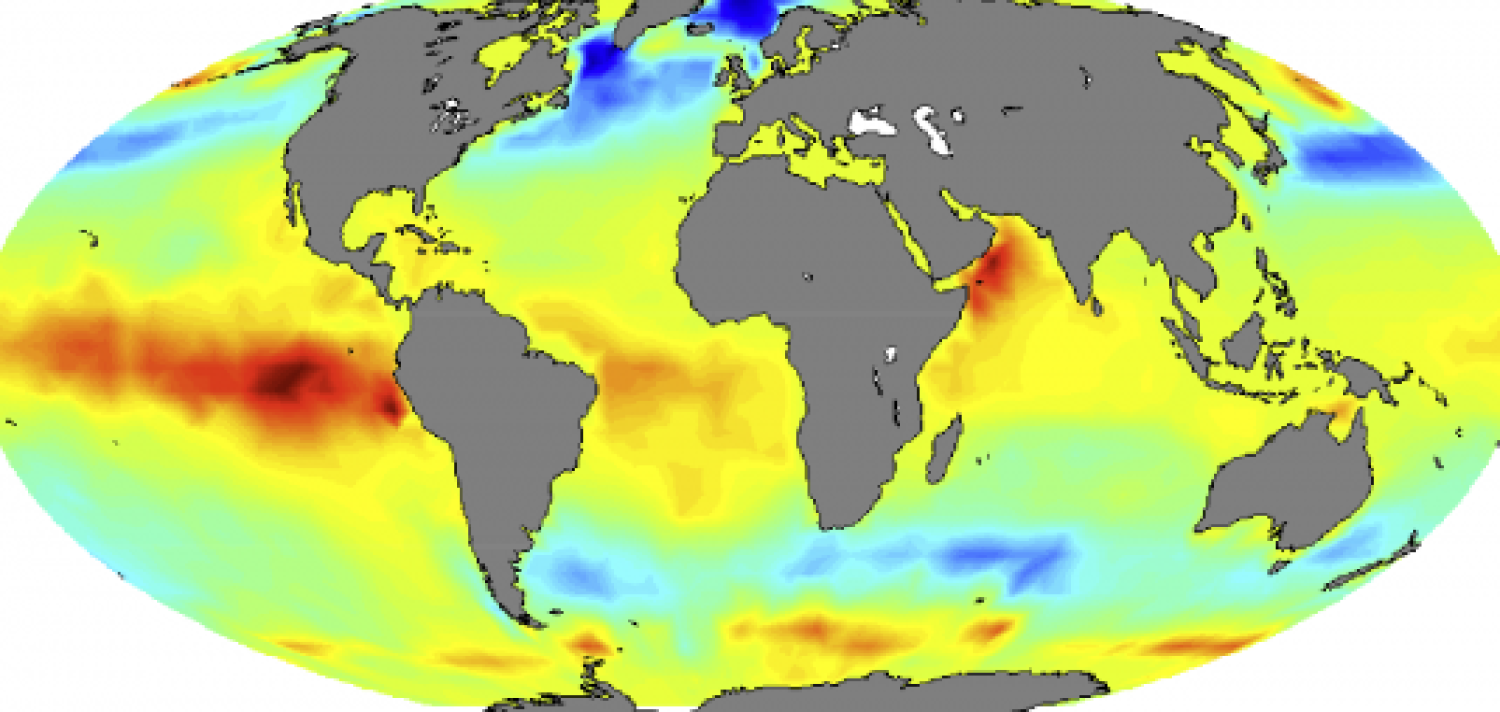Chemical & Physical Oceanography

Overview
The oceans cover approximately 71% of the earth’s surface, and play a critical role in global climate through storage and transport of heat and carbon dioxide. Interactions between the ocean and atmosphere are responsible for global phenomena such as El Niño. Understanding ocean circulation and chemistry is crucial for understanding climate variability and prediction. Changes in ocean physics and chemistry also directly impact natural hazards and resources such as coastal flooding and food availability. ATOC faculty, graduate students, and research staff work together on a wide range of oceanographic research topics: large-scale dynamics; small-scale turbulence, air-sea interaction; carbon cycling and biogeochemistry; remote sensing of the ocean; ocean-ice interactions: and coastal processes. ATOC offers a Master’s and Ph.D. degree in Atmospheric and Oceanic Sciences. Students wishing to specialize in the Oceanography track will enroll in courses that satisfy the core curriculum requirements. ATOC also offers a Graduate Level Certificate in Oceanography.
Core faculty
- Donata Giglio
- Weiqing Han
- Alexandra Jahn
- Kris Karnauskas
- Nicole Lovenduski
- Julia Moriarty
- Sara Sanchez
- Aneesh Subramanian
- Jeff Weiss
Other researchers
- Mark J. Ablowitz, Department of Applied Mathematics
- Michael Alexander, NOAA
- John T. Andrews, INSTAAR and Department of Geological Sciences
- Joseph Barsugli, NOAA
- Frank Bryan, NCAR
- Antonietta Capotondi, NOAA
- Gil Compo, NOAA
- William Emery, CCAR and Department of Aerospace Engineering Sciences
- Christopher W. Fairall, CIRES
- Albin J. Gasiewski, CET and Department of Electrical and Computer Engineering
- Peter Hamlington, Department of Aerospace Engineering Sciences
- Anne Jennings, INSTAAR and Department of Geological Sciences
- Keith Julien, Department of Applied Mathematics
- Lakshmi Kantha, CCAR and Department of Aerospace Engineering Sciences
- George Kiladis, NOAA
- Scott J. Lehman, INSTAAR and Department of Geological Sciences
- Keith Lindsay, NCAR
- Matt Long, NCAR
- Tom Marchitto, INSTAAR and Department of Geological Sciences
- Ralph Milliff, CIRES
- Steve Nerem, CIRES, CCAR, and Department of Aerospace Engineering Sciences
- Matt Newman, NOAA
- Lev Ostrovsky, Department of Applied Mathematics
- Cecile Penland, NOAA
- Prashant Sardeshmukh, CIRES
- Harvey Segur, Department of Applied Mathematics
- De-Zheng Sun, Department of Atmospheric and Oceanic Sciences
- Colm Sweeney, CIRES
- Alexander Voronovich, NOAA
- Gary Wick, NOAA
Relevant courses
- ATOC 3070. Introduction to Oceanography
- ATOC 4215/5215 Descriptive Physical Oceanography
- ATOC 4730/5730 Physical Oceanography and Climate
- ATOC 5051 Introduction to Physical Oceanography
- ATOC 5061 Advanced Ocean Dynamics
- ATOC 5300 The Global Carbon Cycle
Other resources

